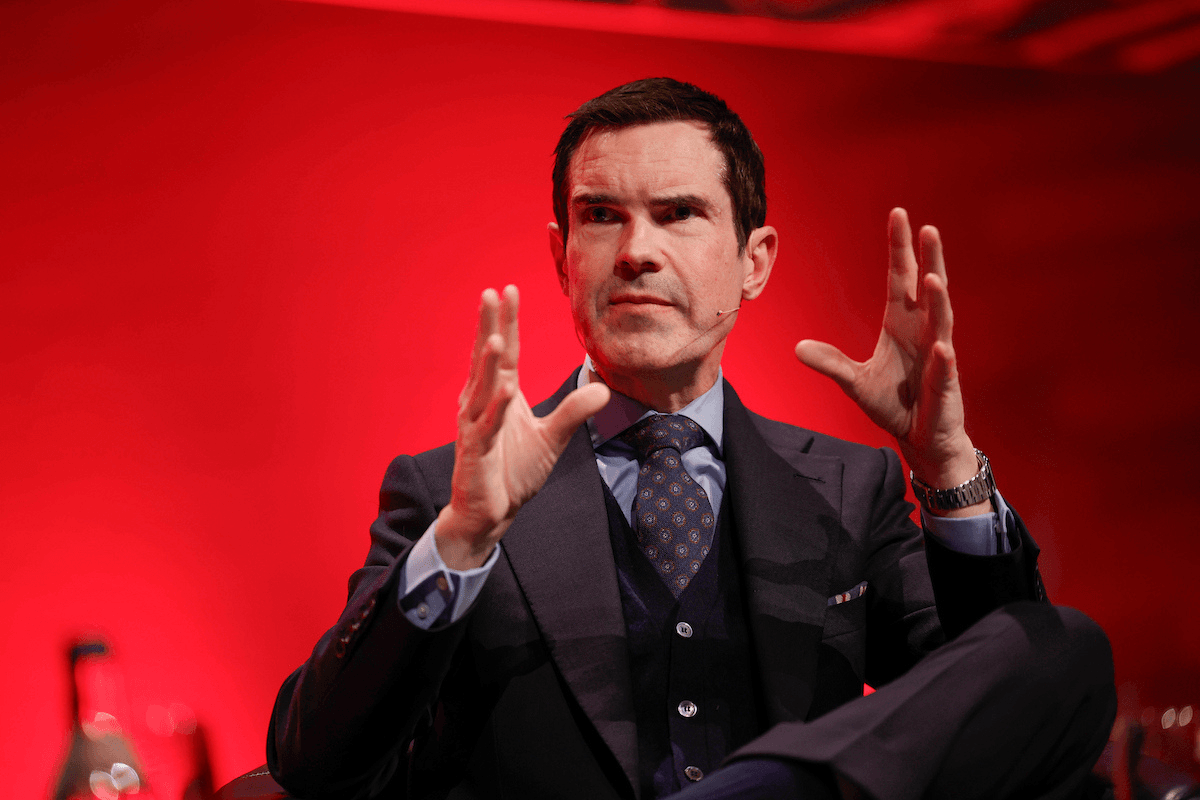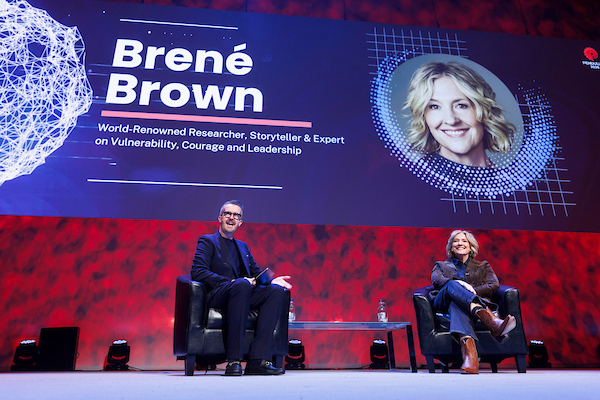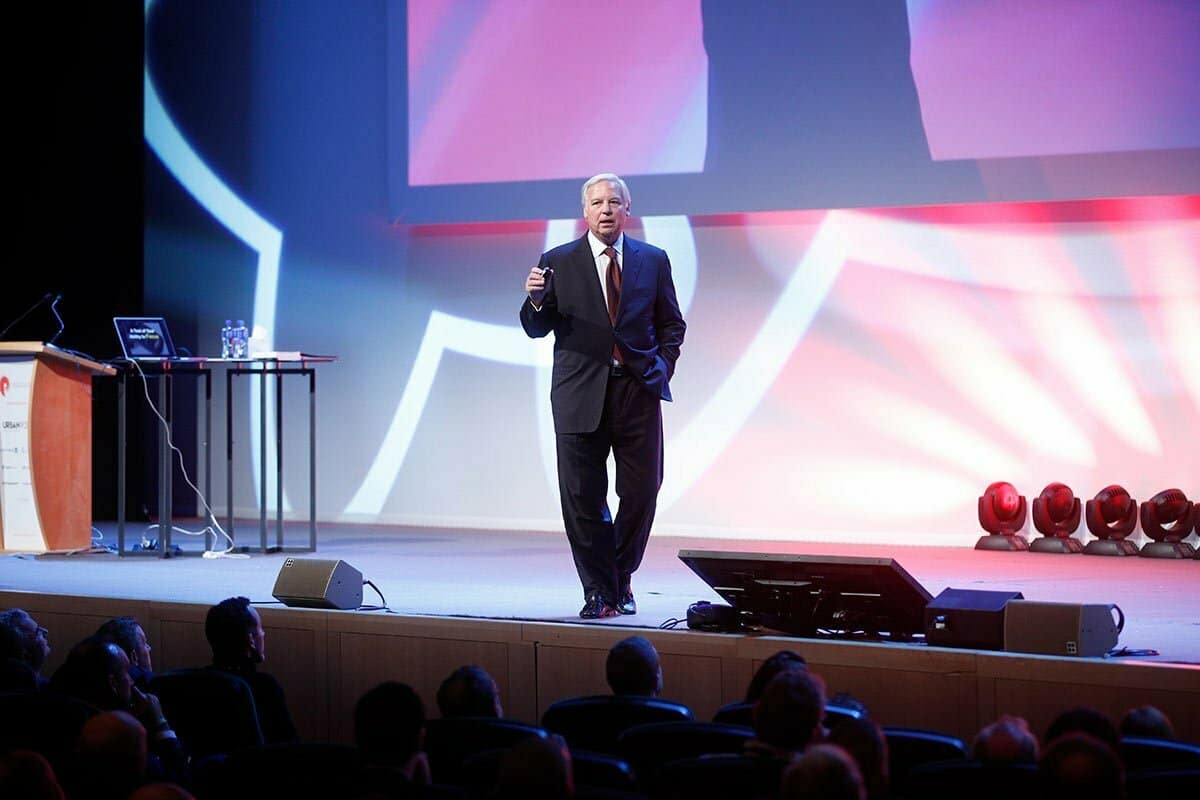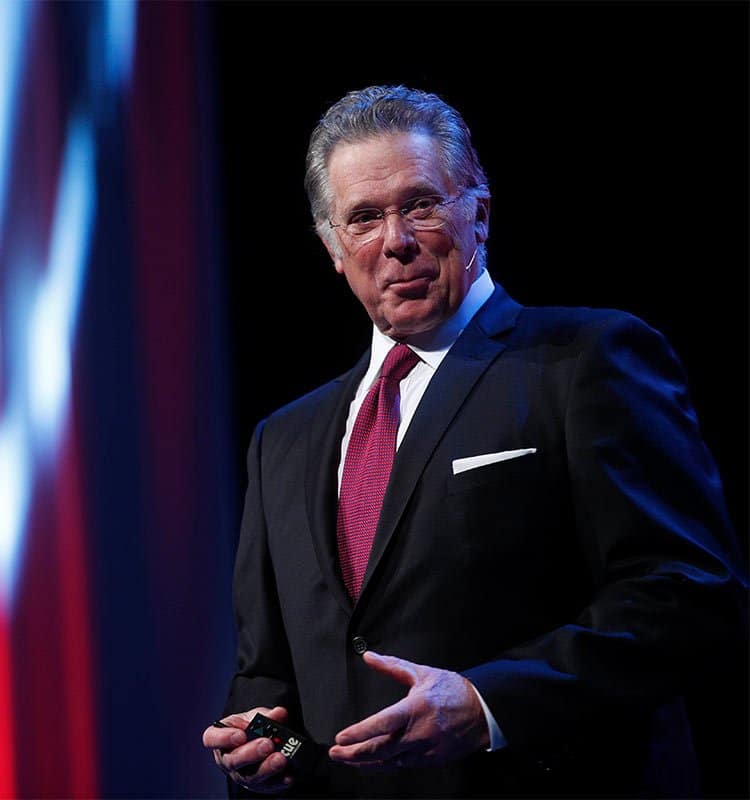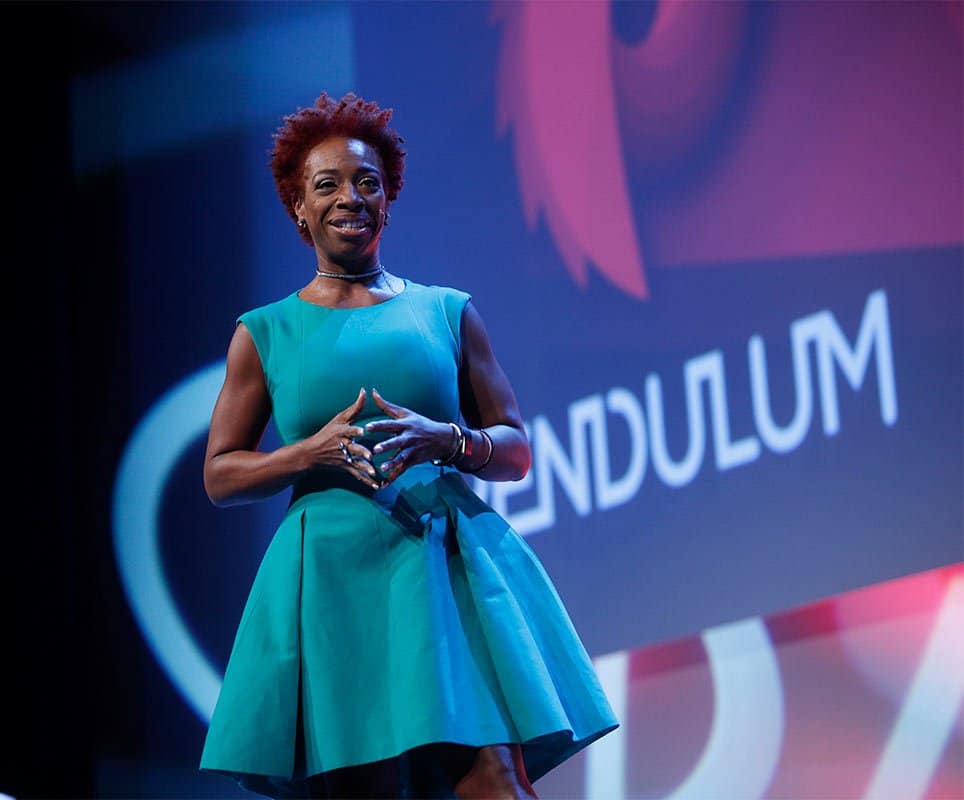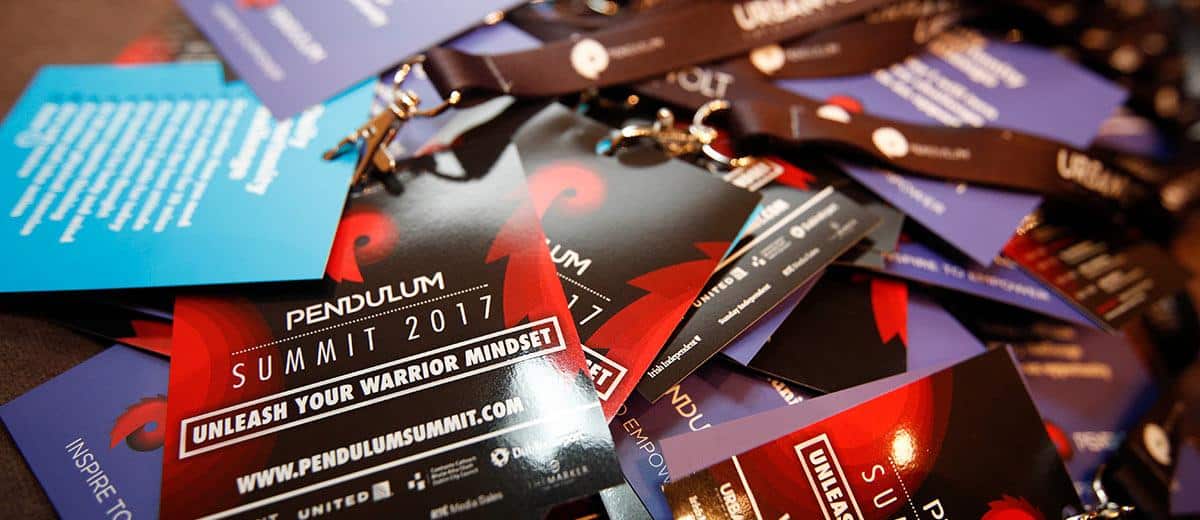In a time of widespread uncertainty and anxiety we have decided to recap on one of Pendulum 2020’s most practical keynotes, Caroline Currid. With many instructed to work from home, colleges and schools suspended and social distancing instructed, we have all been gifted with free time. Instead of anxiously scrolling through your news feeds, or becoming frustrated with the inconvenience this pandemic has caused, the Pendulum Team want to make this an opportunity to focus on ourselves. Put the words you have learnt with us along the way into action these coming weeks, achieve something great from this time of uncertainty.
As one of Ireland’s leading performance psychologists who has worked with numerous companies and world-class sports teams, Caroline gave the Pendulum 2020 audience a 6-step guide each of them can apply to achieve their Highest Performance Potential. Take a look.
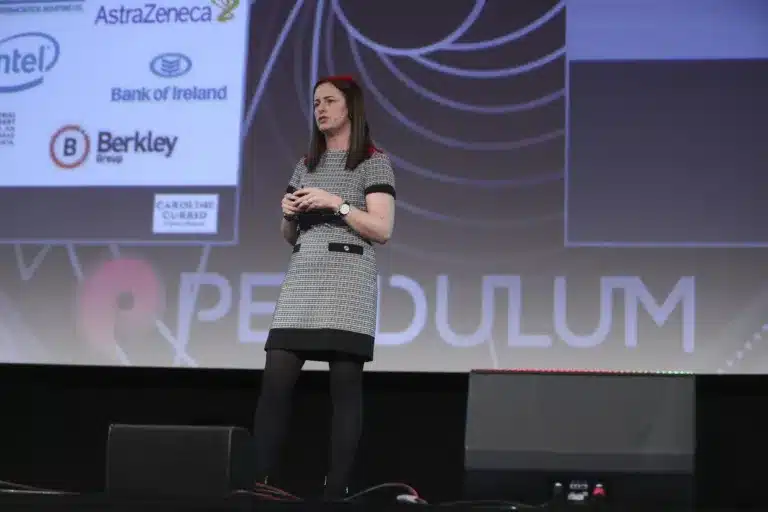
Caroline opened her keynote speech by introducing herself and noted for everyone in the audience that there is a commonality running throughout all the keynotes they will hear at Pendulum 2020, and explained how each of the speakers is talking about different topics and telling different stories however they are all aiming to enable the audience to reach new levels of professional and personal performance. The commonality throughout is key to showing them the different ways which they can achieve these new levels.
There are six fundamentals which Caroline stated will help the audience to achieve their own high performance milestones.
But first Caroline stated, You Must Define What Performance Looks Like For You
Success and high performance will look different for every person and every team. It is essential that when someone sets out to achieve high performance they must have their idea of high performance in their head. It is the foundation which they need to base themselves and give them the clarity they need. She asks, ‘What is the definition or you? What are you going after?’.
1: Purpose
If you know what you want, the key question is ‘Why do I want it?’. What are you going to gain, what result are you going to achieve? Once a person sets their goal, they need to know why they are striving for it, or their goal can become redundant.
Why is key to understanding your purpose.
Understanding yourself and your story, looking at why you want to achieve the goals you set for yourself is fundamental for successfully achieving those goals. If you understand your values, you’ll understand what drives your behaviour. As leaders, we need to get to know the unique story and the values of your team.
Resilience is key. If one is aware of their purpose, it builds huge resilience. Living in a world full of complexity, filled with stress and high pressure with more and more being asked of us every day. The confidence in yourself to understand your why, creates incredible confidence in yourself and resilience when you face these challenges.
Purpose- ‘your purpose is about how you use your strengths as a leader to impact others and how we use it as a team, how we use our strengths as a team to impact our organization to impact our business and to impact the wider world’.
2: The Process
The question- How? The answer- Focus. Once someone realises their values and sets their goals, focus is the key component for someone to achieve their high performance. ‘Would you believe that over 43% of our day is spent focusing on things we don’t control’. It is imperative that a leader puts a black and white process in place for their teams. It gives them clarity to focus on the things they can control and what they want to achieve versus what they don’t want to achieve. It helps them to prioritize. Often, a teams priorities don’t match their values and they wonder why they are not achieving their goals. Their priorities must match their goals in order for their goals to be met.
This can be done by creating habits. Habits ingrained in our subconscious creates consistency and although it may get boring, Currid reflects on her research that shows those who create these day-to-day habits which some may see as boring actually achieve high performance. It is slow, mature building of one’s business or team.
She also stressed to the leaders in the room to recognise their teams. Their teams are the experts in their given fields, the people on the ground who do it day in and day out and who are the true experts in any field- not the leaders.
3: Measurement
Once you have these strategies in place, the next step is to measure your progress. ‘What are your key performance indicators? What are you measuring within your team that’s meaningful in relation to what you do?’. She recognised that some people/companies can set up to 10/12 KPI’s and expect to achieve all of them when in fact, when broken down only 2 or 3 of these are truly important.
When you have good clarity on what and how you are being measured it brings the emotions under control and gives more focus. It gives our people more responsibility about how they will go about achieving this, and giving them accountability if they are not achieved. There has to be consequences. If KPI’s are not met, every team needs to have consequences in place- we need to see what it looks like if we are not achieving what we set out to achieve. They also need to reap the rewards, if goals are met they deserve to be acknowledged and awarded.
4: High Standards
The idea of ‘whatever it takes’ mentality should take the fore here. First and foremost, we need to look at our work ethic. In order to achieve high performance, people have to make sure they are working extremely hard and extremely smart when they go about their business. Currid encourages the audience to ask themselves ‘are we working harder than those around us?’ How are we preparing? Preparation is key. What level are we preparing ourselves in relation to what we are going after?
She cautioned the voice that comes in to all of our heads. ‘It’s good enough’ mindset is not acceptable. The voice that challenges us everyday, in every task. It is fundamental for us to gain control over that voice, strengthen our minds and not allow excuses to soften us.
When we talk about high performance, there will be sacrifice. It is impossible for all of us to achieve peak performance in every aspect of our lives, it will result in us burning the candle at both ends and wiping ourselves out. She reminded the audience to prioritize what they really want. Two or three fields is the maximum anyone can expect to achieve high performance at one time, any more and they are stretching themselves too thin, and in between those two or three areas- ensure you are practicing intelligent recovery. Sleep, exercise and nutrition are three pillars that we should all live by. She asks the audience, ‘are we being intelligent with our recovery? Because we deserve to look after ourselves’.
5: Honest Communication
Honest communication is a fundamental part of creating high performance culture. We all need to have that courage to be honest with what we are feeling. What are we thinking within our teams? How are we communicating? Have we the courage to say what we are truly feeling/thinking? If we don’t, and wipe stuff under the carpet what are we actually saying to ourselves? If we’re not honest we’re bringing down our self-worth. The mindset, ‘I’m not important enough’ comes to the fore and when we face high-pressure environments in various stages of our days, that impacts our emotions and our potential to reach the high performance levels we have set for ourselves and our teams. Currid stressed the importance of removing the fear of saying what one truly feels, especially in teams.
She recognised that doing so gives great accountability to individuals to perform. However, she did also note the implications this honest communication may have in the workplace. It is important to note who others are talking to, with reference to sensitivity and whether they can take the honesty from their team, noting HR individuals in the room who know these problems all too well. But she reiterated that we have to start somewhere in an effort to achieve high performance, being honest with yourself and others is an important element to do that.
6: The Unit
It is all about relationships. We have goals and your organization has goals and they have the strategy but the first and foremost is about the people within this team and the relationships. It is important to ask ourselves the following key questions,
Do we know each other?
Do we know the people that we’re sitting alongside every single day?
Are we having conversations with them?
Are we building trust with the people that were sitting alongside in our organization or are we just going in and putting our heads down and getting out our daily work?
We have got to build trust with people. We do so through vulnerability. Being vulnerable, not jumping straight in and unravelling your life story to your team, but it is important to be open and honest with them and give part of yourself, talking about things that are happening outside of business is how we can create a trusting environment within our teams and organizations.
When leaders begin to trust those in their teams, it correlates throughout and suddenly there is a strong trusting environment in the workplace. With that, comes performance and commitment because teams are not only performing for themselves but for those around them, developing individual’s purpose to surpass their previous performances.
She compared this thought process to the NYFD, men and women running into burning buildings day in day out risking their lives for civilians and each other. The trust that is formed in these teams is like no other, with literal life or death situations in play and they trust each other to work for each other.
According to Currid, these contributing factors are gold dust when it comes to high performance. She challenged the audience to review these factors and evaluate themselves honestly and apply her advice to various aspects of their lives to reach their high performance capabilities.
Don’t forget to sign-up to our newsletter to make sure you don’t miss out on any week of this series!

